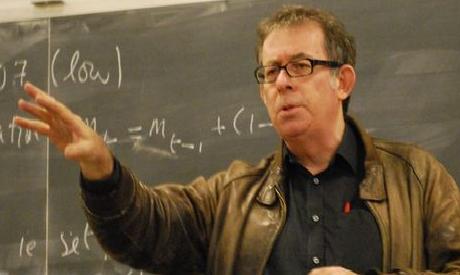Written by Alex Callinicos
Reviewer Adefolarin Olamilekan
This book was first published in March 1995. The fundamental issues discussed in it are however relevant to today. Although the experiences captured in this book are the one found in Britain, I can say, it is also reflecting experiences that have permeated the globe in terms of workers, bosses and government relations.
The book has six chapters of imperative topics as well as useful addresses and notes all making 75 pages in whole. Chapter one discusses the topic “Are the union finished?” This is a question posed with those who claim the working class is shrinking, in mind. The author makes it clear that the working class as a whole, should not be confused with one particular kind of employment –blue collar, manual labour versus white collar and highly-skilled workers.
Rather in reality the working class consists of all those who are compelled to sell their labour power in order to earn wages on which they can survive. Here also the issue of strikes was deeply analysed by the author, cautioning trade unions over the believe that the legal restraints imposed on industrial action have made it impossible to carryout effective strikes action.
“Capitalism, the unions and trade unions leader” is the topic of chapter two; here also the author’s clarification on capitalism was well dissected. In it also the limitations of trade unions were pointed out. The union bureaucracy’s mediatory role between workers on one hand and capital and the state on the other is the clearest sign of the limitations of trade unions.
There is thus a tendency for the bureaucracy to do everything it can to confine workers struggle within the framework of the existing system by accepting a sharp separation between economic and politics. As the author suggests, what is wanted is a political party of workers which seeks to replace the old system with a new form of state based on the movement’s mass organization. Building such party in the view of the author, is the inseparable from the struggles that develop within the unions, between and rank and file and the bureacracy.
The rank and file in unions should be at the heart and soul of decision-making based on mandates to officials. But what we are experiencing in today’s union is quite different. Chapter three discusses rank and file movements. These are groups of union members who serve as workplace delegates subject to direct election and recall by the workers they represent.
The author pointed out that the bureaucrats’ betrayal of specific struggles made the rank and file aware of clash of interest between themselves and their representatives and therefore of the need for forms of organization more responsive to their needs and wishes.
As in the case of the unions they too start by seeking to win material improvement for particular groups of workers within the framework of capitalism. The author was specific that for rank and file to succeed they must be led by revolutionary socialist as this will give them political independence of both the bosses and the bureaucracy.
Chapter four entails discussion around the “Last- upturn the 1960 s and the early 1970s”, while chapter five focuses on the “Era of defeats 1974-1989”. These two topics are quite distinct issues and especially when it comes to understanding the role of trade unions in economic recession, fight for upward wage review etc.
Moreover, the coming to power of the labour party in Britain, where workers expected their party to do things for them and, for a time at least were willing to make sacrifices in the belief that labor must be pursue policies for a good reason and to benefit workers. At that time the labour movement was thus undergoing a threefold crisis of organization, ideology and leadership. As Tony Cliff pointed out “workers who lack the confidence to stand up to their own bosses cannot be expected to come out in support of other workers”.
In other words, with threefold crisis, no union can achieve much under such circumstances. The “tasks for today” is the topic of chapter six of the book, were the author expectation from socialist revolutionary us to first build strong sectional organizational as this is basic of all effective trade union organization lies in its roots in the workplace. Solidarity is what strengthens the working class and this must be maintained unhindered.
Work with and against the officials, this is expected of trade unions as this is a central theme of Marxist tradition that socialist should be actively involved in them. Revolutionary socialist organizations involvement in unions is crucial to building workplace union organization with radical views and vibrant actvism.
Quoting the author, the book ‘socialist in the trade union’ is a book that explains how rank and file workers can use the power of unions. However, the task of engagement is getting wider as most unions are now more or less corporate unions as union leaders assume characters similar to those of companies’ CEOs and MDs.








